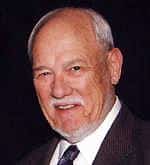 By ANDY ANDREWS
By ANDY ANDREWSLos Alamos World Futures Institute
Previously we looked at individual bubbles in a bubble model with the definitive statements that they want and need to make a profit.
They need compensation, usually money, so that they can acquire other things for survival and ride the elevator of Maslow’s Hierarchy of Needs.
They want to avoid pain while seeking pleasure. Profit, as used here, means making a living or money by producing or buying or selling goods and services.
An individual selling his or her labor (getting a job) is in the business of him or herself, with most of the governmental rules covered by the employer.
But what if you are the employer, self-employed? You are an employer even if you are the only worker. You are a business bubble, wanting to make a profit.
To make a profit there are several activities a business can perform all related to the humanity bubble. Clearly, humanity needs stuff, be it natural or manufactured, and the stuff must be distributed and marketed. People and other bubbles need to know about it even if it is just a service such as accounting.
And in the evolving humanity bubble, new stuff is needed, developed through research and development. Just beyond the need for food is the need for safety and enter another business arena. Plus, we need to facilitate the exchange of money for goods and services, necessitating a finance industry. And finally, we need mechanisms to handle the goods and sell them – sales.
Plus we need the means of distribution. It is a complicated list central to the “orderly” movement of individual bubbles in the bubble of humanity affecting all of the bubbles in between.
Plus we need the means of distribution. It is a complicated list central to the “orderly” movement of individual bubbles in the bubble of humanity affecting all of the bubbles in between.
Delving into a bit more detail it is useful to consider some classifications of businesses. First there is agriculture, growing food, be it plants or fish or animals. Okay, fishing is not agriculture, but it is finding food. We also need material resources such as wood, oil, gas, and ores.
While we can debate the need for energy sources such as oil and gas, we do need other resources to make stuff. We also need manufacturers of the stuff and railways, trucking, airlines, and shipping companies to move the stuff and sometimes people.
Once the stuff arrives at a distribution point, a store, wholesale storage, or an actual distributor, it must be passed to the consumer bubble for something else of value, usually money.
Enter the financial institutions and their means of processing and accounting. If we still traded with gold nuggets, would we need these institutions? Probably not.
But now we need this “overhead” function to facilitate the trade. Likewise, we need real estate companies to manage the building, sale, and transfer of properties since, as bubbles, we are not amenable to universal sharing. Similarly, we need water, electricity, sewage treatment and waste collection. Is this “overhead” run by societal bubbles for societal bubbles?
Then there are services such as the CPA, but also barbers, beauticians, tanning salons, dry cleaners, and pest control. Keep adding to the list and then evaluate the true need.
For example, I might add medicine and would conclude absolutely its need, but would ponder the need for its enormous overhead. Or how about lawyers? Yes they are needed, but how many?
Finally, there is entertainment. We do need to have some fun.
Finally, finally, almost forgot, there is communication. Perhaps it is a service, perhaps it is a need, perhaps it is a necessity, perhaps it is entertainment, and perhaps it is a nuisance.
But is a business, whether it injects content or not.
The smallest business bubble is the sole proprietorship. It is a business owned and operated by a single bubble, possibly a married bubble.
But as a business, he or she is responsible for the accounting and documenting profits, all of which go to the proprietor.
This is important because of responsibilities to the governmental bubbles, which want their taxation revenues. As an aside, the government bubbles could be considered businesses, but usually are not.
One can go up the scale of business bubbles starting with partnerships and moving to cooperatives, corporations, limited liability companies (for legal purposes), and franchises and on and on. Central to all of these businesses is the desire, attempt, need and purpose of making a profit.
The profit goes to the owners, be they a sole proprietor, a shareholder, or a partner.
They are for profit businesses and if they have employees they are making profits for them, too in the form of wages. And the government likes them also since the employees, the owners, and the businesses themselves pay taxes.
How much of this taxation is adding to the value of the products? Wait a minute, the taxes are used to satisfy the needs of the society bubble – or are they? How much is really being used for overhead?
If everything works smoothly, everybody makes a profit, even the government.
But if a company is in the business of making, advertising, and selling sealing wax, it probably will lose money.
It will be a non-profit, even if not in the legal sense.
It will be a non-profit, even if not in the legal sense.
Till next time…
Los Alamos World Futures Institute website is LAWorldFutures.org. Feedback, volunteers and donations (501.c.3) are welcome. Email andy.andrews@laworldfutures.org or email bob.nolen@laworldfutures.org. Previously published columns can be found at www.ladailypost.com or www.laworldfutures.org.

